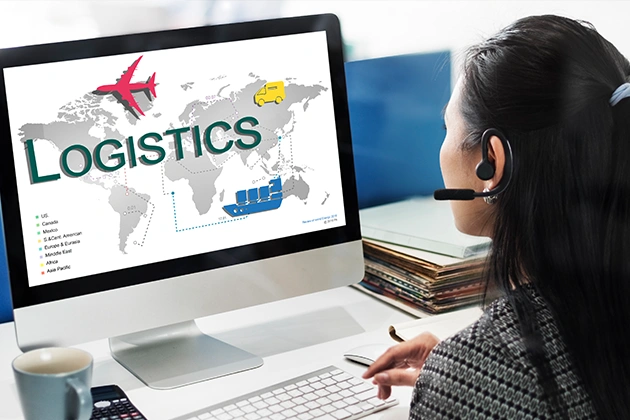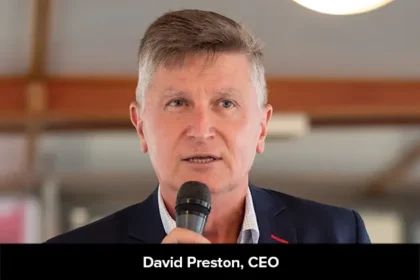In today’s fast-paced and globalized economy, effective transportation management is not just a convenience—it’s a necessity. Businesses of all sizes, from small retailers to multinational manufacturers, rely on the seamless movement of goods to meet customer demands and stay competitive. That’s where Transportation Management Solutions Development Services come into play.
Transportation Management Solutions (TMS) refer to specialized software systems designed to streamline and optimize the logistics and transportation processes within a supply chain. These systems provide real-time insights, improve coordination between carriers and shippers, and automate many of the manual tasks that once bogged down logistics departments.
But let’s be real—off-the-shelf systems often miss the mark. They might work for generic operations, but every business has unique logistical needs, routes, regulations, and customer expectations. That’s why companies are increasingly turning to custom Transportation Management Solutions Development Services. Tailor-made TMS platforms are built to fit your specific processes like a glove, improving efficiency while giving you a major competitive edge.
Key Features of Effective Transportation Management Systems (TMS)
When you invest in Transportation Management Solutions Development Services, it’s not just about making your life easier—it’s about giving your business superpowers. A truly effective TMS doesn’t just manage transportation—it optimizes, automates, and amplifies every aspect of the process.
Here are some must-have features that define a modern TMS:
- Route Optimization
TMS platforms use advanced algorithms and real-time data to determine the most efficient delivery routes. This isn’t just about saving on fuel—it’s about maximizing driver productivity, reducing delivery times, and cutting unnecessary miles.
- Real-Time Tracking
Knowing where your shipments are at any given moment is crucial. Real-time GPS tracking allows both you and your customers to stay informed about delivery progress, delays, or changes. This level of transparency boosts trust and allows for proactive problem-solving.
- Freight Billing and Audit
Say goodbye to invoice discrepancies and manual verifications. Automated freight billing ensures accuracy and reduces the risk of overpayments. The system can flag inconsistencies, apply fuel surcharges, and keep a detailed audit trail.
- Load Planning and Optimization
TMS software can help optimize how freight is loaded into containers or trucks, maximizing space and reducing the number of shipments needed. It’s all about making the most of every inch and pound.
- Customer Communication Tools
From delivery notifications to delay alerts, a modern TMS enhances customer experience by keeping everyone in the loop. Happy customers = more business.
The best part? With custom development, these features can be adjusted or added based on your unique needs. You’re not stuck with cookie-cutter functionality—you get exactly what your business requires.
How to Choose the Right Development Partner
Selecting a development partner for your custom TMS is one of the most critical decisions you’ll make. Not all developers understand the intricacies of logistics, and choosing the wrong team can lead to missed deadlines, wasted budgets, and underperforming systems. So what should you look for when hiring experts in Transportation Management Solutions Development Services?
- Proven Experience in Logistics Software
It’s not enough to be a great software developer. Your partner must understand logistics, transportation, supply chain dynamics, and industry challenges. Ask for case studies, testimonials, or product demos from past TMS projects.
- Technical Expertise
Your TMS will likely need to incorporate AI, cloud architecture, real-time tracking, and robust security. Make sure the development team has full-stack capabilities and can work with the latest tech, including APIs, mobile, and IoT.
- Customization and Flexibility
Avoid developers who offer cookie-cutter solutions. The right partner will take the time to understand your business and create something tailored. Flexibility in development, timelines, and pricing is also key.
- Strong Project Management Skills
TMS development is complex and involves many stakeholders. You need a partner who can manage projects efficiently, communicate regularly, and stick to milestones. Agile methodologies are a plus.
- Post-Launch Support
Development doesn’t stop at deployment. Your partner should offer ongoing maintenance, updates, user training, and technical support to help your team get the most out of the system.
- Security and Compliance Knowledge
Logistics data is sensitive. Make sure your developer prioritizes cybersecurity, follows best practices in encryption and data handling, and understands compliance requirements relevant to your industry.
- Transparent Pricing
Custom TMS development isn’t cheap, but the ROI is worth it—if done right. The ideal partner will provide a detailed quote, breakdown of services, and won’t surprise you with hidden fees.
Your development partner should feel like a long-term ally, not just a vendor. Choose wisely, and the payoff can transform your logistics operations from the ground up.
Custom vs. Off-the-Shelf: Which Is Right for You?
When it comes to choosing a Transportation Management System, one of the biggest decisions you’ll face is whether to go with a ready-made, off-the-shelf solution or invest in custom Transportation Management Solutions Development Services. Each option has its pros and cons, but the right choice ultimately depends on your business goals, size, and operational complexity.
Off-the-Shelf TMS solutions are pre-built and typically quicker to deploy. They work well for small to medium businesses with standard logistics needs and offer basic features like shipment tracking, order management, and reporting. These solutions often come with subscription pricing, which can be appealing from a cost perspective—at least initially.
However, the major drawback of off-the-shelf TMS software is limited flexibility. Customization is usually minimal, and you’re bound by the vendor’s roadmap for updates and new features. As your logistics needs evolve, you may find yourself trying to force your processes to fit the software, rather than the other way around.
On the other hand, custom TMS development is all about building a solution from the ground up, tailored to your specific business workflows. Whether it’s integrating with your legacy ERP, handling complex multi-modal shipping, or creating a unique carrier bidding system, custom software molds itself around your exact requirements.
Yes, custom development requires a higher upfront investment and more time to deploy—but the long-term benefits in terms of efficiency, scalability, and competitive edge far outweigh the initial cost. You also own the system entirely, which means no license fees, no vendor lock-ins, and full control over future enhancements.
In summary:
- Choose off-the-shelf if your needs are basic, your budget is tight, and speed is a priority.
- Choose custom TMS if your operations are complex, you need flexibility, and you’re planning for growth.
Conclusion
Transportation is the backbone of modern business, and how you manage it can make or break your operations. Off-the-shelf solutions might work for some, but for businesses with complex, evolving needs, Transportation Management Solutions Development Services, like https://inveritasoft.com/industries/tms, offer the power, flexibility, and scalability to truly transform logistics.
From reducing costs and boosting efficiency to delighting customers and future-proofing operations, a custom TMS puts you in the driver’s seat of your supply chain.
If you’re ready to take control of your transportation operations and build a solution tailored specifically to your business—don’t wait. Reach out to a trusted development partner today and turn your logistics into a well-oiled, data-driven machine.










